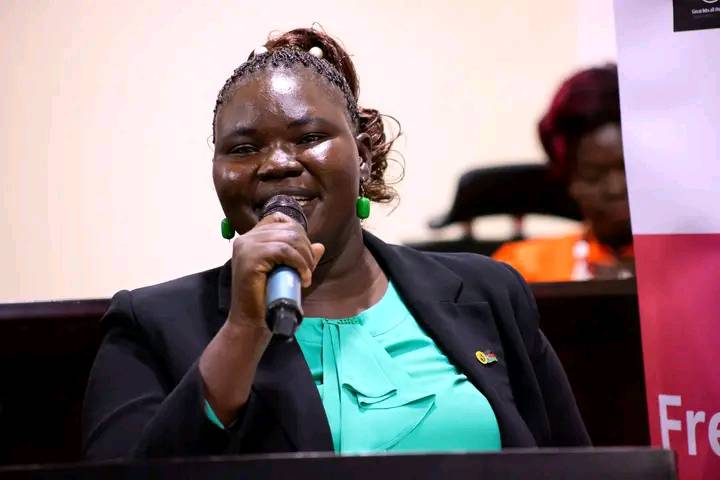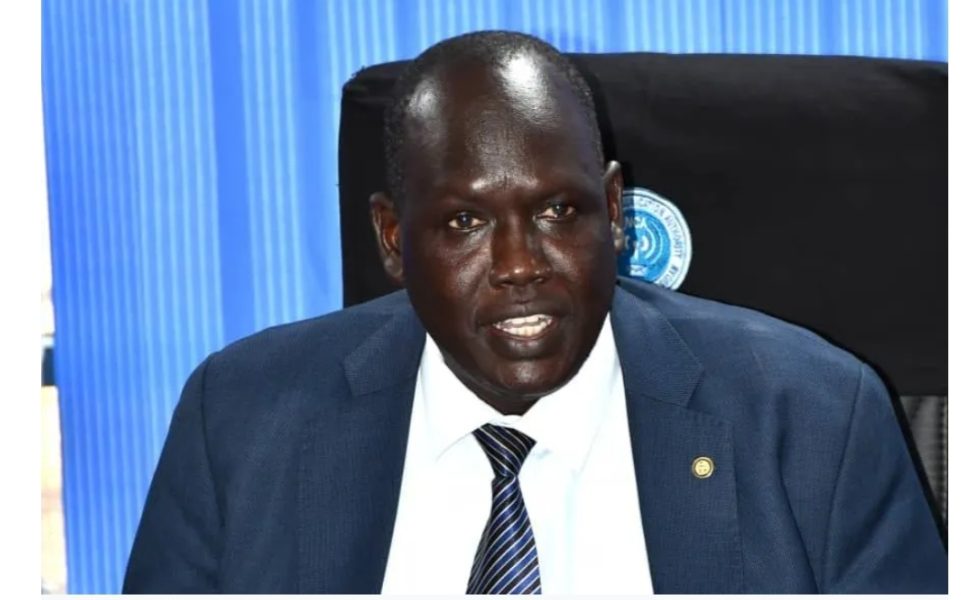
By Jenifer J. Ogawi and John Akoon
Amidst growing concerns over press freedom, particularly in the lead-up to upcoming elections, the government is urging media outlets that have been shut down due to legal conflicts to address their issues through official channels.
Government spokesperson Michael Makuei delivered the message during commemoration of World Press Freedom Day on Tuesday.
His remarks came as civil society representatives and advocates expressed worries about the shrinking space for media in the country, especially as upcoming election in 2026 nears.
At the event, Aya Irene, Director of Association for Media Development in South Sudan (AMDISS), raised concern over the ongoing closure of several media outlets, citing the Juba Monitor Daily Newspaper as an example.
“There are media houses that are still closed,” Irene said. “For instance, the Juba Monitor Daily Newspaper has been shut down up to now, and people are still not aware of the reasons behind its closure. As we head towards elections, we want the media to be free and operational.”
Specific cases like that of Juba Monitor are part of wider concerns shared by press freedom advocates, who have documented numerous instances of media outlets facing suspensions, closures, or operational challenges in recent years.
According to Media Authority, out of 302 registered media entities, 173 have ceased operations in the country, leaving only 129 operational.
Some media houses’ closures are sometimes linked to government pressure.
The media landscape is further complicated by ongoing political instability, inadequate infrastructure, and low literacy rates, creating a challenging environment for journalists.
Responding to these concerns, Minister Makuei emphasized that media houses must operate within the established legal framework.
“Those media outlets that are closed have problems either legal or financial,” Makuei said. “As long as you are in conflict with the law, then you need to step back and address it before speaking out. If you have a problem, the Media Authority is there to help, report to them.”
He further clarified that not all closures are a result of government action, noting that financial instability is one of the factors for some outlets.
“Some media houses have closed because of financial crises. That’s not our problem; it’s theirs,” he added.
Addressing the specific example of Juba Monitor, Makuei commented, “Yes, Juba Monitor and other media outlets are closed, but they know why. If they are in conflict with the law, then they must resolve that issue.”

In his part, Elijah Alier Kuei, Managing Director of the Media Authority, reiterated the importance of compliance with regulations, calling on all media entities operating outside the legal framework to formalize their status.
“I urge all media entities operating outside the legal framework to register with the Media Authority,” Alier said. “That way, they can be legally recognized and supported under the law.”
While acknowledged challenges facing the industry, Alier noted that has made progress in creating an enabling environment for journalists.
He stated the institution has accredited 138 professional national journalists, including 36 females.
In the recent Global Index Ranking on Press Freedom, South Sudan made significant progress, rising from 136th place in 2024 to 109th this year, 2025.
Mr. Alier stated that this progress reflects ongoing efforts to promote media freedom and protect journalists’ rights.
He urged journalists to adhere to ethics, particularly in light of advancements in Artificial Intelligence.
“This year’s theme, ‘Reporting in the Brave New World: The Impact of Artificial Intelligence on Press Freedom and Media,’ is particularly important as we navigate the complex challenges and opportunities presented by AI. Artificial intelligence is rapidly transforming the media landscape, offering new tools for content creation, distribution, and audience engagement.”
The Media Authority boss added that maintaining a conducive media regulatory environment requires trust and collaboration among all stakeholders.

